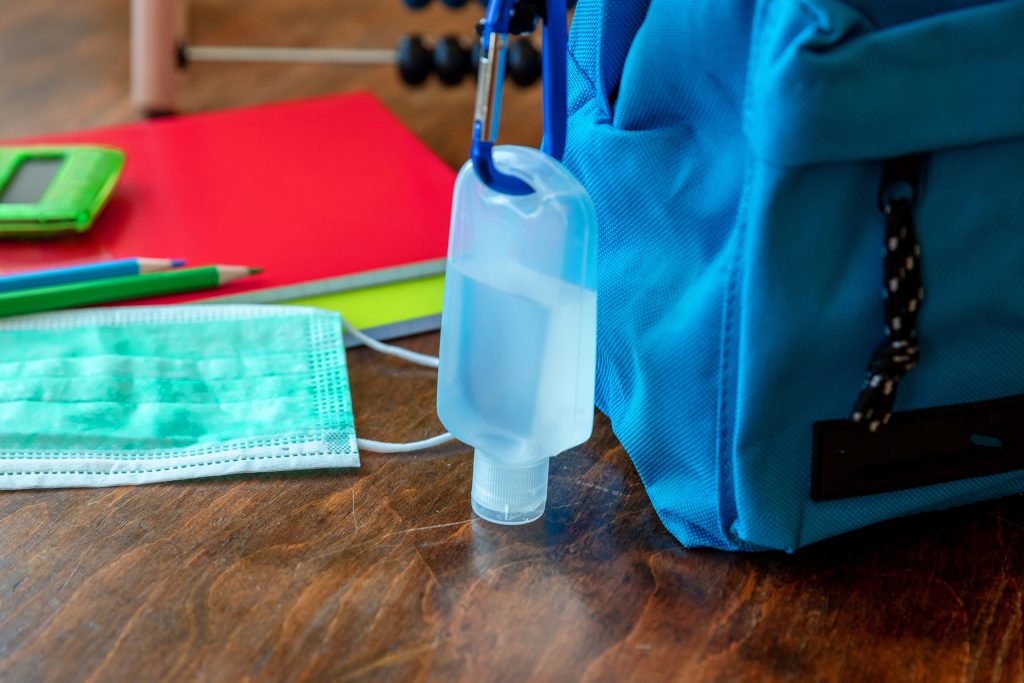Study: What is pandemic’s impact on students, teachers and parents?

“We are not all in the same boat, but we are all in the same sea. Some by yacht, some by boat and some by clinging to whatever floats our way and fighting with all of our might.”
Katie is a first-grade teacher. Like many other educators during the COVID-19 pandemic, she struggles in both her work and personal life. By sharing her story through narrative inquiry, she quickly learned she was not alone.
COVID-19 is changing the face of education. Educators and students across the country are working to accommodate to socially distanced and virtual school while also supporting their student’s fears and concerns.
Matthew J. Etchells, director of education outreach, marketing and communications for the Education Leadership Research Center and Center for Research and Development in Dual Language & Literacy Acquisition, was teaching a group of graduate students when the pandemic forced Texas A&M to move classes online. As his feelings of uncertainty grew, he shared his concerns with fellow educators and students in his courses.
Etchells found many felt the same and developed the idea for his latest narrative research focused on how students, educators and parents are dealing with trauma.
“Sharing narratives with people who are also experiencing the same situation, in this case COVID-19, is cathartic and there is value in the act of writing as a form of cognitive processing and naming the experience directly,” said Etchells.
Virtual education: While universities across the country have long been using both synchronous and asynchronous online teaching, school districts were not in the same position. When the pandemic closed districts, administrators were left scrambling to find software and online tools to adequately educate students.
Both veteran and beginning teachers were in the same boat – forced to try different methods to see what worked best for them and for their students.
Teachers finishing their first year faced additional struggles as they scrambled to move their teaching online. They admitted they felt COVID-19 took their first year from them.
“COVID-19 has stolen both my precious time with my first class and any sense of finality or accomplishment that comes with surviving the first year of teaching,” said Katie. “Instead of worrying about surviving teaching, we are worrying about surviving this virus.”
Mental health impact: Aside from narrative inquiry, the research also used a life stress survey and a quality of life scale survey. These surveys measure the likelihood of stressful events causing health issues and illnesses later in life as well as the positive and negative effects of those serving as caretakers.
While adjusting to a new teaching environment, the face of the home environment also changed. The line between home and work was eliminated, leaving teachers to care for their own children and teach their students simultaneously.
“The dilemma between in loco parentis and service versus personal safety was expressed by multiple authors as the research process continued,” said Etchells. “I think we all cried at some point in the first few weeks of COVID-19 as we felt powerless. Forming a research team and writing a paper about how we were all feeling gave us a sense of control and shared experience.”
Based on responses to the surveys, all participants are at an 80% chance of a major health breakdown in the next two years. They also scored high in compassion fatigue and secondary traumatic stress.
Student impact: Educators are not the only ones struggling through the pandemic. Students say they were initially excited about the idea of virtual education, but quickly lost interest in school and struggled to pay attention.
“One educator noted that her students were experiencing regressive behaviors such as tantrums, thumb sucking and other self-soothing behaviors as she began to teach virtually,” said Etchells.
Teachers say they feel helpless in helping their students cope because they have not been able to process it themselves. This adds additional stress to already fatigued educators.
“I feel helpless watching these episodes happen on screen and I feel as though I can’t help them,” said Danielle, a first grade instructional assistant.
Future research: Etchells hopes this research is just the beginning of investigating the impact of COVID-19 on the field of education. He plans to continue looking at student achievement and how COVID-19 is affecting initial teacher identity formation.
He also hopes others will conduct global research including data gathered over a longer period of time and include a wider scope of research questions.
You can read stories from educators by downloading Etchells’ latest research piece from the Social Science Research Network.

